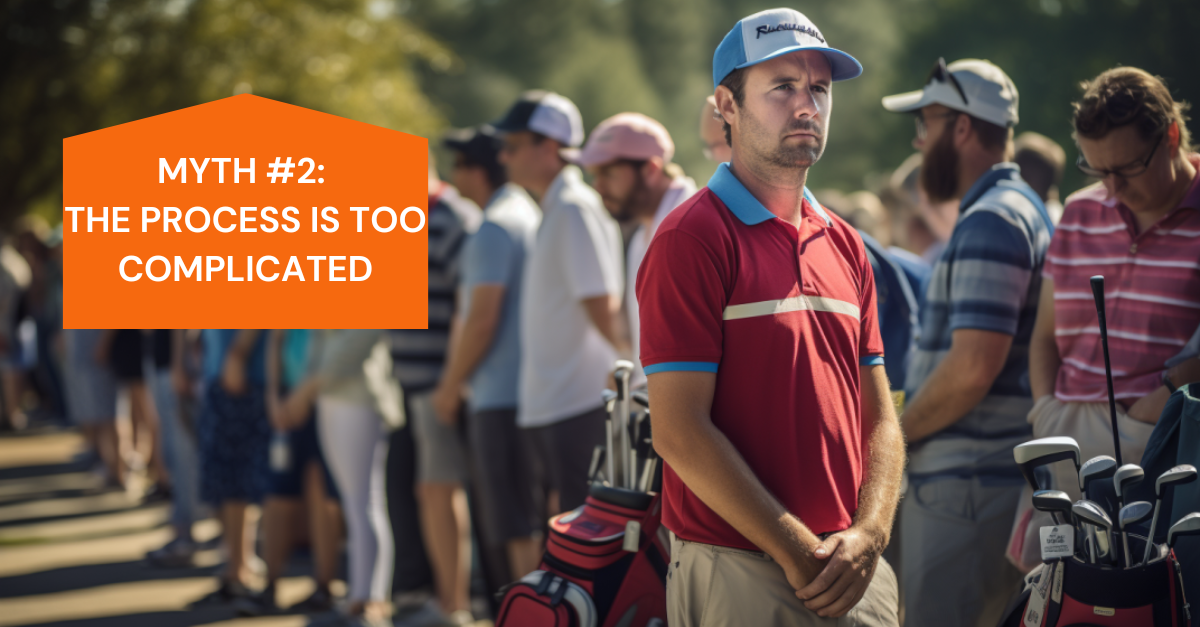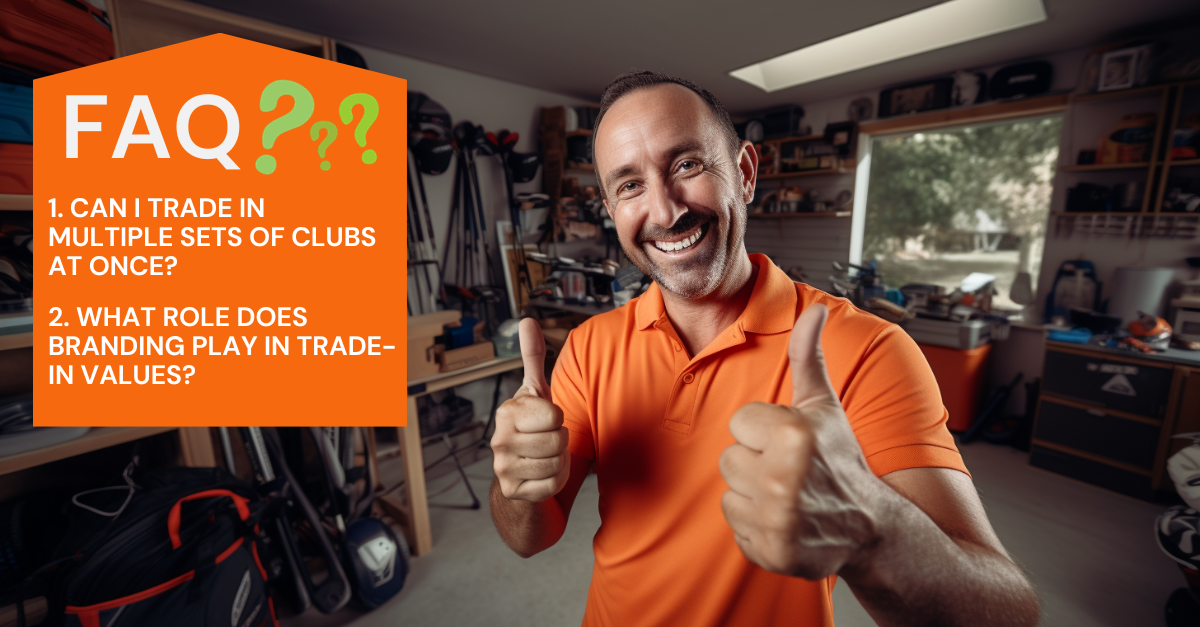
Ready to upgrade your current clubs, but not sure where to start? Maybe you've heard some rumors floating around that trading in your old golf clubs might be easier said than done. Fear not! We're here with the definitive guide so you can make an informed decision and get back on the course with a slick set of upgraded sticks. Today we'll debunk all the myths about trading in golf clubs - so grab your driver and let's tee off!
Your old golf clubs may not be as flashy or as innovative as the latest models, but that doesn't mean they don't have value. Many golfers wrongfully assume that their old used golf clubs are only good for collecting dust in the garage, but in fact, they can be traded in for a decent amount of money. Don't let your old equipment go to waste when you could trade it in and put the value it holds toward new clubs.
The lifespan of golf clubs runs anywhere from five to ten years before they begin to lose quality. Due to this, it’s normal for golfers to trade in their clubs every few years for equipment that suits their abilities better. During these trade-ins, you can often get a good amount of money for your old clubs depending on their quality. The clubs will not be worth their value ten years after purchase, so it is always better to trade them in and take advantage of the value while it lasts.

If you’ve been putting off trading in your clubs for this reason, let us help you debunk this myth;
The first step to trading in clubs is to research your options. Many companies, such as iGolf Value Guide, offer golf club trade-ins, but not all of them offer the same benefits. Some companies give store credit that can only be used for in-store purchases, while others give real cash. Some also have a wider range of accepted brands and equipment than others. To ensure that you get the best value for your clubs, do your research, and find the best company that meets your needs.
After identifying the companies that you would like to work with, the next step is to get quotes or trade in values. Most companies require you to fill out an online form with the details of the clubs you want to trade in. The information required usually includes the brand, type, model, and condition of the clubs. It’s important to provide accurate information about the condition of the clubs, as this will affect the final value of the trade-in. Within a few days, the company will send you a quote for the clubs you want to trade.
Once you have accepted the quote provided by the company, it’s time to ship your clubs. Most companies will send you shipping labels to stick onto your package for your trade in, and you can then drop it off at a shipping center. Companies like iGolf Value Guide will provide a shipping label if your value is $100 or more. Ensure that your clubs are well-packed to avoid any damage during shipping. It’s essential to keep track of the package using the shipping number on the shipping label to ensure that it safely arrives at the company’s warehouse.
After the company has received your trade in, they will inspect them to ensure that the information provided is correct. If they discover any discrepancies, they may revise the initial offer and give you a new one. If all is well, they will issue payment and you will receive the agreed-upon value in cash or store credit, depending on the company’s policy.

With the advent of online marketplaces and their well-rounded golf club trade-in programs, the hassle factor has been reduced to next to nothing. From free shipping, easy-to-use trade-in calculators, simple packaging instructions, and overall user-friendly interfaces, the trade-in process has become a complete delight. You no longer have to set foot in any store or negotiate with a potential buyer, giving you more time to focus on playing golf and experience new courses that you always wanted to. Toss in the convenience of shopping online, and you've got yourself a win-win deal.
Trading in used golf clubs is one thing, but selling on platforms like Craigslist or eBay delivers an experience full of headaches. It's time-consuming, risky, and, most of all, does not cater explicitly to the golf equipment life cycle. Choosing the trade-in process over such platforms has its benefits. First, it guarantees a better deal that involves exclusive trade-in promotions, free quotes, and club upgrades, thereby increasing the probability of getting top dollar value. Second, websites that specialize in golf club trade-ins boast dedicated support teams, providing you with timely responses to queries and any assistance you may require throughout the entire process. Long gone are those times when you felt stranded and alone in the crowded online marketplaces; welcome to a hassle-free environment.
Don't let myths and misconceptions prevent you from unlocking the potential in your old clubs. By researching the market value, finding a reputable trade-in program, and accurately assessing the condition of your clubs, you can receive a fair value for your trade-in in order to fund a future purchase. Whether you're looking to upgrade to newer clubs or simply want to try out some different equipment, trading in your old clubs is a smart and effective way to improve your game and enjoy the sport you love.
Trade In Golf Clubs: Myths Debunked

Yes, you can! You don't need to limit yourself to trading in one set of clubs at a time. However, it's important to remember that the total trade-in value will depend on the condition and type of clubs you're trading in. If you're trading in multiple sets of clubs, make sure they're in good condition and meet the trade-in criteria. Need more info Click Here.
The brand of your clubs can play a significant role in the final trade-in value. Some brands hold their value better than others, which means you could get more for a set of clubs from a high-value brand. However, the brand is only one of many factors that are considered. The condition of your clubs and their age will also play a role in determining their trade-in value.
Still have questions? We have answers! Click here for more information.